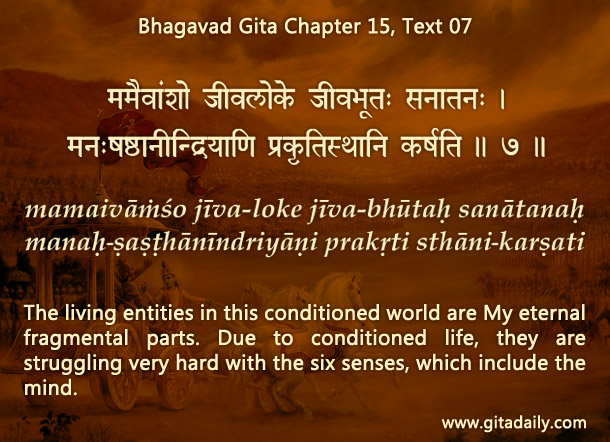Some people oppose the idea of karma: “It is just one among many differing systems of morality. These systems simply make those who follow it judgmental toward those who don’t.”
Such opponents misconceive karma: its essence is harmony, not morality. And harmony is a universal necessity, for we all exist as parts of systems bigger than ourselves.
Consider driving. When we drive on the road, we participate in a system bigger than ourselves: the road transport system. While driving, we need to follow the traffic rules. These rules may vary in their specifics; some rules can even oppose each other. Indians drive on the left side of the road; Americans, on the right side. Yet these opposing rules have a concurring purpose: harmony. Following the rules helps us drive smoothly and safely; defying the rules endangers us and others. Evaluating who is following and who is defying is not being judgmental; it is just doing what is necessary to keep the system functional.
Similarly, during our life-journey, we participate in several systems bigger than ourselves: our body, our society, our environment, for example. And all such systems are subsumed in the biggest system, the Whole that contains everything; God. We all are his parts (Bhagavad-gita 15.07).
The rules of karma — of the causal connection between choices and consequences — are meant to help us live harmoniously: with our body, our society, our environment and ultimately with God. Taking into account variations in time-place-circumstance, the specifics of how different people can progress toward harmony can vary. When people overlook the purpose of harmony and treat all rules as moral absolutes, they become judgmental.
Overlooking such judgmental people, if we focus on harmony, then understanding karma can help us make our life, our relationships and our world better.
Think it over:
- How are the rules of karma centered on harmony, not morality? Explain with an example.
- Why may specifics for seeking harmony vary? Explain with an example.
- While applying and explaining rules, how can you focus on harmony, not morality?
***
15.07: The living entities in this conditioned world are My eternal fragmental parts. Due to conditioned life, they are struggling very hard with the six senses, which include the mind.
To know more about this verse, please click on the image
Explanation of article:
Podcast:


Leave A Comment